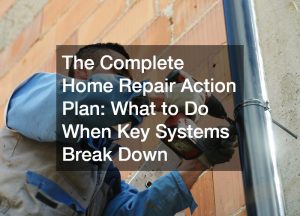Getting a mortgage often comes to mind when you think of buying a home. But if it’s your dream house in question, you start to consider building, too. Building a home gives you more freedom, albeit expensive and time-consuming. But it’s the only way to end up with a place customized exactly according to your desires.
What if your dream house is any place that’ll make you think “this is it”, instead? Many home-buyers actually base their choice on such a feeling. If they enter a property and immediately feel at home in it, they take it as a sign to start making an offer.
If you’re unsure where you stand yet, this article will help you decide if you’re better of getting a construction loan to build a home, or getting a mortgage to buy one.
What is a Construction Loan?
Building a home doesn’t always require you to spend your hard-earned savings. You can get a construction loan instead, a short-term loan that finances the building of a home or another real estate project.
Construction loans often have higher interest rates because they’re riskier than a mortgage. Their terms only last for about a year, which is the usual period a home takes to finish building. But what’s interesting about a construction loan is that you can refinance it into a mortgage. You can do that after your home finishes building, or you can get a new loan to pay off the construction loan. The latter approach is sometimes called “end loan”.
The conditions under a construction loan also make it a good option. Some lenders may only require borrowers to pay off the interest while the home is under construction. They’d only ask for the balance when the construction is complete.
But unlike a mortgage, the funds from a construction loan may not touch your hands. Instead, the lender may pay it directly to your contractor. The payments may come in installments rather than a lump sum; the intervals may depend on the stages of construction completed.
If you don’t want to build a home from the ground up, but only restore an old property, a construction loan might work for you as well. In any case, though, a lender will ask for a 20% to 25% down payment first. And as with any loan, you also need a good credit history to be approved.
Note that the requirements for getting approved don’t end at financial records. You also need to show your lender a comprehensive list of construction details, a.k.a. “blue book”. You should also prove that a qualified builder will take on the project.
If you’d act as your own general contractor, meaning you’d DIY the entire project, you’d be less likely to get approved, so take note of that. But you have one more option, which is an owner-builder construction loan. You just have to prove your ability and knowledge in construction, otherwise, lenders may deny you funds.
Getting a mortgage should be a breeze for you if you have good credit. Plus, it’s faster and more convenient. If you have a real estate agent, they can take care of all the inspection matters and closing contracts. All you need to do is check out the home for yourself, and pay.
Repaying the loan is where it can get bothersome. Though it’s generally cheaper to buy a home than to build one, it doesn’t automatically mean a mortgage gives you an edge. If the interest rates are at an all-time high, that would increase your monthly payments. On the other hand, if you got a fixed-rate mortgage and the interest rates drop, you’d still be paying the constant interest of your loan, even if it’s higher.
What Should be Your Choice?
Construction loans and mortgages are offered by reputable banks. So in terms of security, either loan has no issue. But in terms of convenience, affordability, and conditions, the two aren’t the same.
Your choice should depend on your priorities or your nonnegotiables. For instance, if you’re set on a specific number and size of rooms, then the building is better for you, hence you should pick a construction loan. But if you’re pretty flexible, and flooring types, paint colors, and roofing material don’t matter to you much, a mortgage loan suits you more.
Consider your income, too. If you’re unsure how to assess your ability to repay, get pre-approved for a mortgage. If your pre-approved loan amount is smaller than the value of the house you want, you can wait it out and grow your income first. Once you become more financially capable, you can afford to build instead, and enjoy a custom-built abode.
Home-building or buying isn’t an endeavor to take lightly, so don’t rush in making a decision. Ensure that your other debts are settled first before taking out another loan. If your credit history is impressive, you can afford both loans, and maybe even spend your own savings.








